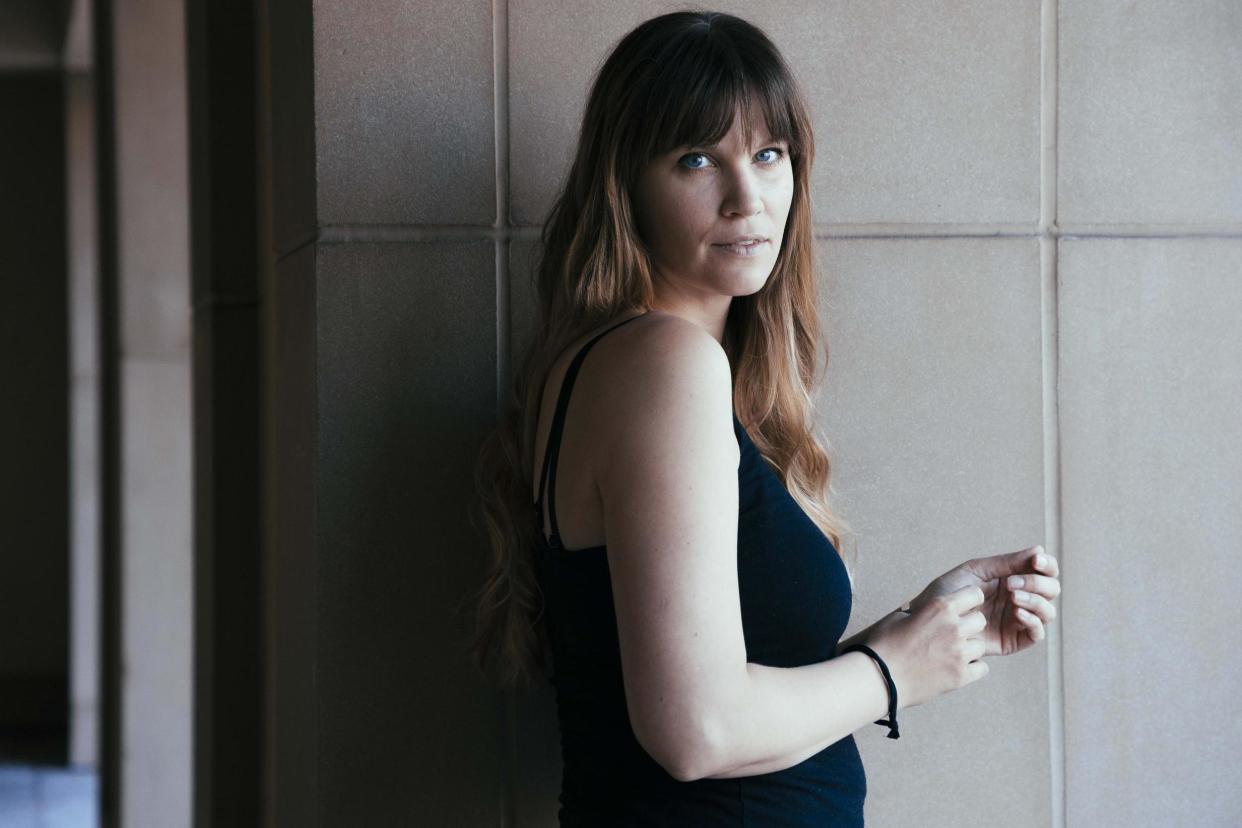Actress Frida Farrell: 'I want to use my three-day sex slavery hell to help other women'

Actress and model Frida Farrell has warned women to take precautions against trafficking as she marked the grim 15th anniversary of her being drugged and sexually exploited in a Harley Street flat.
As part of the Evening Standard and Independent’s special investigation into modern slavery, 37-year-old Farrell told the harrowing story of the three-day kidnap ordeal during which she was locked up and forced to have sex with a parade of unknown men.
She was afraid her kidnapper would find her again if she came forward afterwards. “I was silent for 10 years. I didn’t tell anybody except my husband, my mother and a friend because I was so scared”, she said. Farrell, who last year released the award-winning film Selling Isobel about her experience after finally plucking up the courage, called on women to be cautious — particularly when going to someone’s house for a photoshoot.
“Bring a friend and make sure people know exactly where you are, so that if you’re not back in an hour they can report it,” she advised.

She also lent her backing to our investigation, saying: “I am hugely impressed with the Standard and the Independent for launching this joint campaign to widen our knowledge of modern slavery — a problem that’s quickly grown larger than we can comprehend — and to help stop other girls and women suffering what I went through.”
Since Selling Isobel, she said she has received messages and emails from other victims saying “something similar happened to me”, or “I was raped”.
Swedish-born Farrell was 22 when she was approached near Oxford Circus after a shopping trip one September night in 2002 by a man who said he wanted to cast her in a photoshoot. “He didn’t grab my arm and pull me — he said, ‘Call me if you want’. And that makes you think ‘Oh, he’s not pushing me’,” she said. She showed up and as the photographer took a series of shots all seemed well. But when she arrived at his flat the next day there was no longer a photo studio inside — and her middle-aged photographer’s demeanour had changed.
“He slammed the door behind me and locked it and put the key in his pocket. I thought ‘What?’ and froze. My brain couldn’t quite compute. He pulled out a hunting knife and just held it. Didn’t threaten me — just held it by his side, almost as if to say, ‘I have this. Don’t f***ing do anything,’” she said. He told her to put on a set of lingerie and offered her some milk, which she suspected was drugged.
“I thought I’d rather just drink the milk and not live to see what’s going to happen,” she said. “I didn’t know if he was just a crazy man who was going to murder me, rape me or hit me ... so I just drank the milk and thought ‘God help me’.”
She woke up in a different flat and, over the next three days, at least six men abused her while she pleaded for help. Her captor also assaulted her.
But on the third day he left the flat without locking the door. She fled and didn’t stop until she was past Bond Street. She told police a few days later, but today still doesn’t know if her captor was ever found.
Now she wants similar victims to feel unafraid to approach police, friends, family or therapists to tell their stories. “I was so scared because I was embarrassed, and I blamed myself, which is stupid. But I took some time, and now I’m coming out and talking about it, and it’s helping,” she said.
“I thought if there’s just one woman who could have been saved before it happened because she was educated about it, then my job would have been done.”
This autumn she is taking Selling Isobel to the San Diego film festival, with a theatre run planned for London and LA. She hopes it will raise awareness of trafficking, and says: “Then I would have turned the worst thing in my life into something good.”
Take action to end slavery by going to the Evening Standard's online activity platform.

 Yahoo News
Yahoo News 
